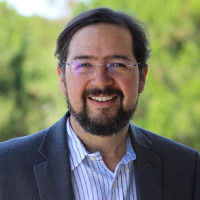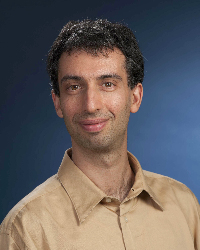Current events
From SIAG-FM
Contents[hide] |
[edit] SIAG/FME virtual seminars series
The series of virtual talks, started by the SIAM Activity Group on Financial Mathematics and Engineering (SIAG/FME), aims at keeping the mathematical finance community connected worldwide beyond traditional formats. The goal is to host a diverse, across all dimensions, lineup of prominent speakers that will present the latest developments in the area of financial mathematics and engineering.
- The talks will be once a month, usually on the second Thursday of the month.
- The talks will alternate with those set up by the Bachelier Finance Society
- All talks will be delivered remotely using Zoom.
- The talks are open to the public. Due to security reasons, all attendees have to register.
- The registration link will be posted on this web-site, next to the each seminar date below. The detailed information about each talk, and the registration link will be also distributed via SIAM-Engage platform.
- The registration is quick (asks only for your name and email), and once registered, you will receive an email with the link to the meeting(s), which is unique to you, so please do not share that email. The registration is usually valid for multiple future talks.
SIAG/FME Seminar Series Committee:
- Chair: Samuel Cohen,
- Vice Chair: Christa Cuchiero,
- Program Director: Luitgard A. M. Veraart,
- Secretary: Ibrahim Ekren
The committee is in charge of the scientific component of the seminar, including selecting the speakers and the format of the events. Suggestions from the public on potential speakers, covered topics as well as general recommendation on how to improve the series are welcome and can be addressed to any committee member.
[edit] Forthcoming Talks
We are delighted that we have joined forces with the Bachelier Finance Society to implement a joint online seminar series. The first date is
March 20, 2025, 1PM-2.30PM (EST) Registration link
and this edition will feature two speakers:
Speaker: Terry Lyons, University of Oxford
Title: The Mathematics of Complex Streamed Data
Abstract: Multimodal streamed data is essentially different to unimodal streamed data. Consider this:
‘A commuter arrives at a bus stop before the bus’ – they catch it;
‘The bus arrives first’ – they miss it.
These are the same two events, but the order changes everything. Yet most models treat these as identical: ‘A bus and a person arrived’ They ignore timing and relationships.
This simplification isn’t harmless. A timed series gives no information about order within sampling intervals. As a result, the sampling rate has to come from the bottom up if it is to preserve this order information. Rough path theory makes a radical change and describes the stream over an interval using a group element. According to the choice of group it is possible to capture order information and to allow a top down description of the data stream without using essential information about the order of events.
This approach to describing streamed data is important to data science because it reduces the dimension needed for descriptive feature sets and so reduces the size of the data set needed to train. There are numerous prize winning illustrations of the methodology in use and the impact can be measured in the hundreds of millions of US dollars.
Bio: Terry Lyons FLSW FRSE FRS is the Wallis Professor Emeritus and Professor of Mathematics at the University of Oxford, a fellow of St Anne's College, Oxford and a Faculty Fellow at The Alan Turing Institute. He is currently PI of the DataSıg and of the complementary research programme CIMDA-Oxford. He was the President of the London Mathematical Society (2013-2015), the Director (2011-2015) of the Oxford Man Institute of Quantitative Finance and the Director of the Wales Institute of Mathematical and Computational Sciences (2008-2011). He came to Oxford in 2000 having previously been Professor of Mathematics at Imperial College London (1993-2000), and before that he held the Colin Maclaurin Chair at Edinburgh (1985-93).
Professor Lyons’s long-term research interests are all focused on Rough Paths, Stochastic Analysis, and applications – particularly to Finance and more generally to the summarising of large complex data. More specifically, his interests are in developing mathematical tools that can be used to effectively model and describe high dimensional systems that exhibit randomness as well as the complex multimodal data streams that arise in human activity. Professor Lyons is involved in a wide range of problems from pure mathematical ones to questions of efficient numerical calculation. He is, in particular, recognised for developing what is now known as the theory of rough paths.
Speaker: Luhao Zhang, Johns Hopkins University
Title: A Class of Interpretable and Decomposable Multi-period Convex Risk Measures
Abstract: Multi-period risk measures evaluate the risk of a stochastic process by assigning it a scalar value. A desirable property of these measures is dynamic decomposition, which allows the risk evaluation to be expressed as a dynamic program. However, many widely used risk measures, such as Conditional Value-at-Risk, do not possess this property. In this work, we introduce a novel class of multi-period convex risk measures that do admit dynamic decomposition.
Our proposed risk measure evaluates the worst-case expectation of a random outcome across all possible stochastic processes, penalized by their deviations from a nominal process in terms of both the likelihood ratio and the outcome. We show that this risk measure can be reformulated as a dynamic program, where, at each time period, it assesses the worst-case expectation of future costs, adjusting by reweighting and relocating the conditional nominal distribution. This recursive structure enables more efficient computation and clearer interpretation of risk over multiple periods.
Bio: Luhao Zhang is an assistant professor in the Department of Applied Mathematics and Statistics at Johns Hopkins University. Before joining JHU, she was a postdoctoral research scientist in the Department of Industrial Engineering and Operations Research at Columbia University from 2023 to 2024. She completed her Ph.D. in Mathematics at the University of Texas at Austin in 2023.
Her research lies on interdisciplinary topics that integrate stochastic analysis, mathematical finance, and robust optimization, with an emphasis on how to exploit information optimally for decision-making in stochastic and uncertain environments from modelling and quantitative aspects. Another recent research interest of hers is the mathematical foundation of generative AI, human-AI interactions, and continuous-time reinforcement learning.
[edit] Past Talks
December 12, 2024, 1PM-2PM (EST) Registration link
Speaker:Jose Blanchet, Stanford University
Title: Inference in Stochastic Optimization with Heavy Tailed Input
Abstract: We will start the talk by discussing empirical evidence from a wide range of areas (including insurance, health care, machine learning, among others) suggesting that often infinite variance models are well-suited for inference, particularly in online data-driven decision making. We will argue that infinite variance estimators can be considered appropriate depending on easy-to-monitor features of historical data and on the spatial and temporal scales over which an online algorithm will be deployed (even if the underlying dynamics have finite variance gradients “in theory”). We will then discuss inference tools that can be applied to monitor the quality of solutions of infinite-variance stochastic gradient descent (SGD) based on several asymptotic statistics. Our results extend classical finite-variance weak-convergence analysis of SGD and state-of-the-art infinite variance asymptotic statistics derived under homogeneity conditions which limit the applicability of SGD in typical online optimization tasks. Based on joint work with Aleks Mijatovic, Wenhao Yang.
Bio: Jose Blanchet is a faculty member in the Management Science and Engineering Department at Stanford University – where he earned his Ph.D. in 2004. Prior to joining the Stanford faculty, Jose was a professor in the IEOR and Statistics Departments at Columbia University (2008-2017) and before that he was faculty member in the Statistics Department at Harvard University (2004-2008). Jose is a recipient of the 2009 Best Publication Award given by the INFORMS Applied Probability Society and of the 2010 Erlang Prize. He also received a PECASE award given by NSF in 2010. He worked as an analyst in Protego Financial Advisors, a leading investment bank in Mexico. He has research interests in applied probability and Monte Carlo methods. He serves in the editorial board of ALEA, Advances in Applied Probability, Extremes, Insurance: Mathematics and Economics, Journal of Applied Probability, Mathematics of Operations Research, and Stochastic Systems.
November 14, 2024, 1PM-2PM (EST) Registration link
Speaker:Ben Hambly, University of Oxford
Title: Systemic risk, endogenous contagion and McKean-Vlasov control
Abstract: We consider some particle system models for systemic risk. The particles represent the health of financial institutions and we incorporate common noise and contagion into their dynamics. Defaults within the system reduce the financial health of other institutions, causing contagion. By taking a mean field limit we derive a McKean-Vlasov equation for the financial system as a whole. The task of a central planner, who wishes to control the system to prevent systemic events at minimal cost, leads to a novel McKean-Vlasov control problem. We discuss the mathematical issues and illustrate the results numerically.
Bio: Ben Hambly received his PhD in 1990 from the University of Cambridge and held lectureships at the Universities of Edinburgh and Bristol before moving to Oxford in 2000. He has interests in stochastic PDEs, rough paths, random processes in random and fractal environments, reinforcement learning ,modelling order books, systemic risk and electricity markets.
October 10, 2024, 1PM-2PM (EST)' Registration link
Speaker: Maxim Bichuch, University at Buffalo
Title: A Deep Learning Scheme for Solving Fully Nonlinear Partial Differential Equation
Abstract: We study the convergence of a deep learning algorithm applied to a general class of fully nonlinear second order Partial Differential Equations. By using a suitable finite difference approximation to the loss function of the deep learning scheme we show the convergence of the numerical solution to the unique viscosity solution. We apply our results and illustrate this convergence to the finite horizon optimal investment problem with proportional transaction costs in single and multi-asset settings.
Bio: Maxim Bichuch holds a M.S. from NYU and a Ph.D. from CMU both in Financial Mathematics. He has been a Postdoctoral Research Associate & Lecturer in the ORFE department in Princeton, and an Assistant Professor at WPI and JHU, before joining the department of Mathematics at UB. Prior to obtaining his Ph.D. He has also gained corporate experience working for Citigroup and Bear Stearns. His research interests include optimal portfolio selection, optimal investment and consumption, optimal control with transaction costs, viscosity solutions, stochastic volatility, credit, funding and counterparty risks, and most recently electricity markets, machine learning, decentralized finance and fintech.
June 13, 2024, 1PM-2PM (EST)
Speaker: Miklós Rásonyi, HUN-REN Alfréd Rényi Institute of Mathematics
Title: Portolio choice for exponential investors when prices are mean-reverting
Abstract: Several asset classes show mean-reverting features, e.g. commodities, commodity futures, long-term safe assets (gold). We investigate the portfolio choice problem for investors with exponential utilities (=high risk aversion) as the investment horizon T tends to infinity. It turns out that the optimal equivalent safe rate grows in a superlinear way, depending on the strength of the mean-reversion effect. We cannot find the exact optimisers but construct a family of simple, explicit strategies that are optimal asymptotically (they generate equivalent safe rates of the optimal order). Interestingly, the presence or absence of a drift leads to entirely different conclusions, the nonzero drift case spectacularly outperforming the driftless one. Time permitting, we also review some
[edit] Past steering committees
2021-2022
\quad Igor Cialenco (SIAG/FME Program Director, Illinois Institute of Technology)
\quad Sebastian Jaimungal (University of Toronto)
\quad Ronnie Sircar (Princeton University)






